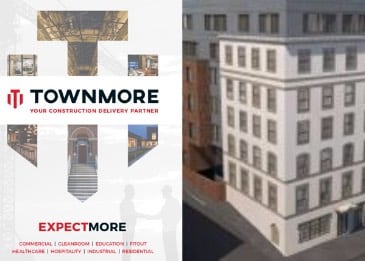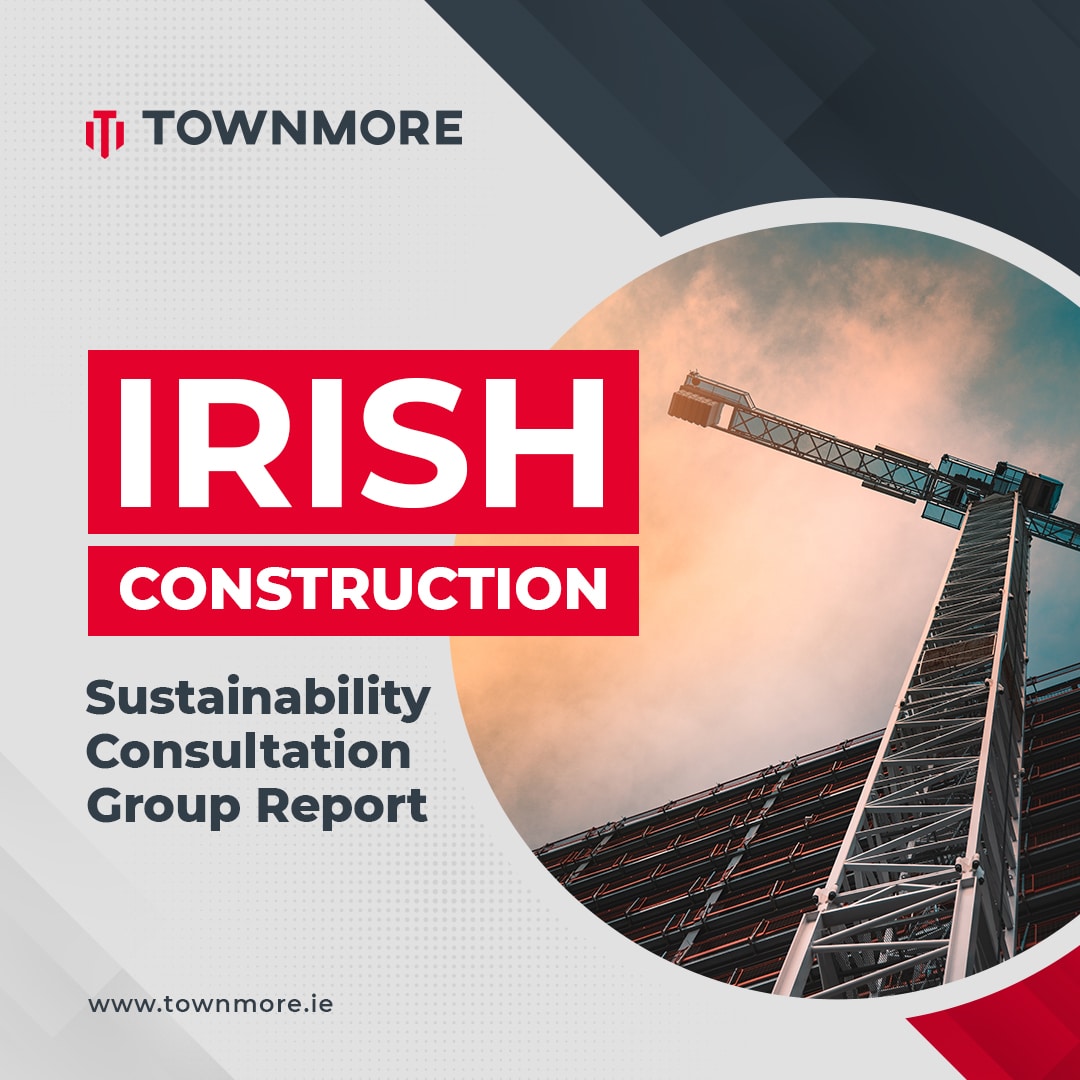- News
- Irish Construction: Sustainability Consultation Group Report

Irish Construction: Sustainability Consultation Group Report
In 2018, the Construction Sector Group, or CSG, was set up by the Government to act as a communications bridge between policymakers and the industry, tasked with ensuring regular and open dialogue between government and members of the industry. At the core, this initiative is intended to ensure that all parties across the public and private sector are working towards the common aim of delivering Project Ireland 2040.
As part of the CSG, a sub-group was set up in September 2020 for ‘Innovation and Digital Adoption’, ably chaired by former Engineers Ireland President, PJ Rudden. The work of this group includes Modern Methods of Construction (MMC), a new Construction Technology Centre and a Build:Digital Centre of Excellence for Building Information Modelling (BIM).
An important part of the innovation remit is sustainability and the CSG’s Sustainability Consultation Group Report was published earlier this week. The purpose of the report is to outline the key research areas for disruptive and scalable innovation in sustainability, carbon reduction and climate action across the Irish construction industry. The focus is on supporting increased construction activity – including a 50 percent increase in housing output – which is welcome.
The report emphasises the need to “rapidly understand the whole-life carbon” of the Irish built environment and to support greater re-use of existing stock.
Part of the research involved a survey of 100 key stakeholders, through which opinions were gathered under the themes of Decarbonisation, Circular Built Environment, Climate Change Resilience, and Social Value & Community Wellbeing. The results of this survey will help to develop initial proposals for research and innovation projects.
Digitisation (rather than digitalisation) and decarbonisation are the megatrends driving innovation across the industry right now. The Government’s Climate Action Plan provides for a 50-60 percent reduction in greenhouse gas emissions (from 2018 figures), and a 7 percent reduction annually as Ireland works towards carbon neutrality by 2050. Decarbonising existing local material manufacturing and development of novel local sustainable materials emerged as the most important area of research, followed closely by easily accessible design tools (BIM technologies) for whole-life carbon analysis and waste reduction. The affordability of efficient renewable systems such as heat pumps and smart microgrids was also recognised as a priority for the industry.
Critically, the report identifies barriers to innovation across the industry, including the fragmented nature of the industry, the cyclical nature of the industry, lack of public sector leadership, current planning regime, lack of demand and economies of scale, lack of funding supports, and, interestingly, the lack of a culture of mentorship to encourage innovation and personal growth. Given the industry’s challenge in attracting and retaining talent, cultivating personal development seems like a potential win-win.
www.townmore.ie



